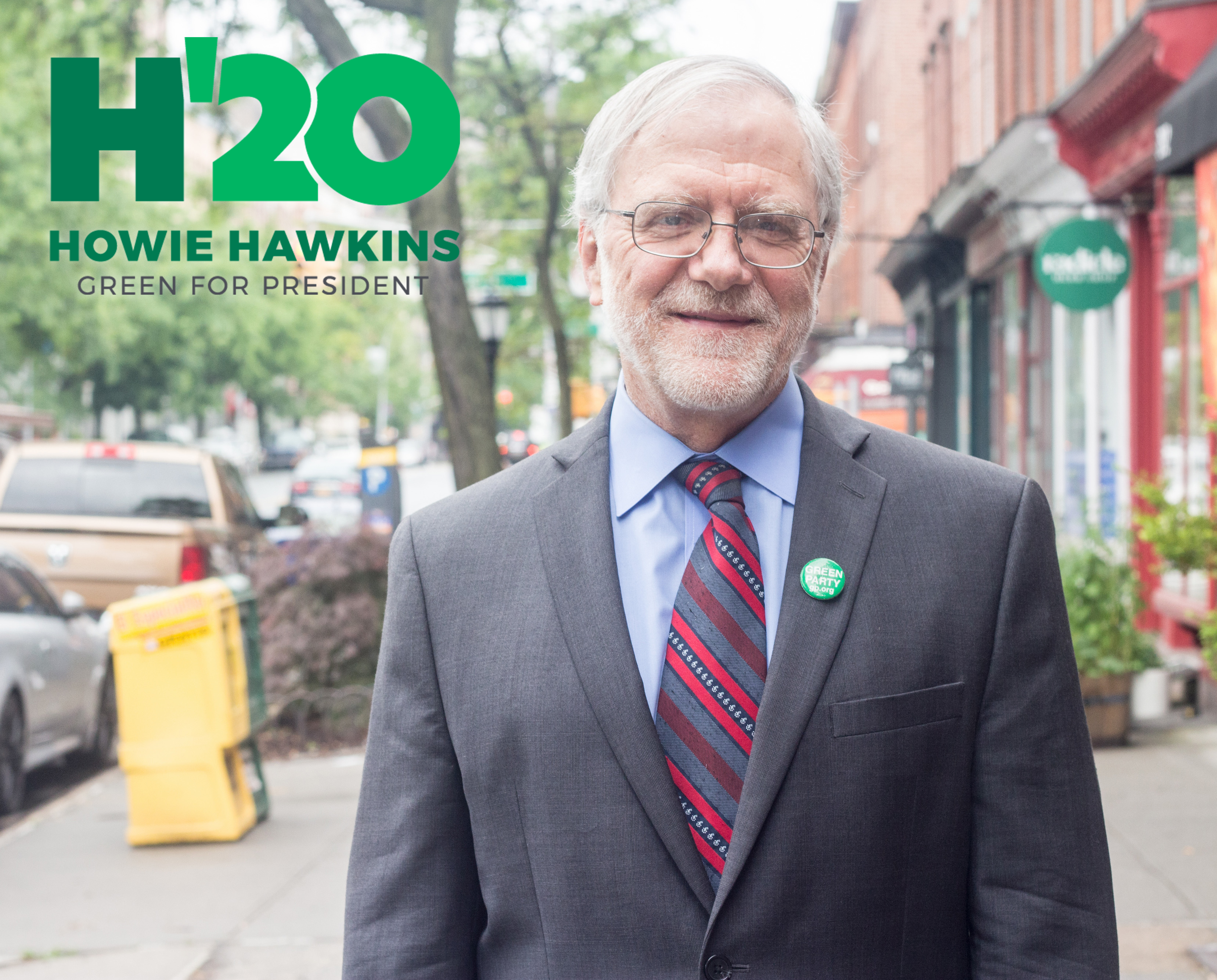2020 Candidates
Registered Green Party voters in Colorado have an opportunity to cast a vote for their preference of who should receive the Green Party of Colorado’s nomination for president, as well as the nomination for Colorado State House District 55.
Delegates to the Green Party of the United States (GPUS) Presidential Nominating Convention, to be held in Detroit on July 12, 2020, will be allocated proportionally to candidates according to our “Procedure for apportioning the Presidential slate delegates” (see section 3.8.2).
Due to the COVID-19 virus and in order to practice social distancing, in lieu of an in-person state nominating convention, we are holding a ranked-choice vote online. Colorado Greens can request a ballot here. We will also hold a virtual meeting on April 18, in order to certify the results of this online vote and to select delegates. Details will be available soon.
To check/change your voter registration to ensure you’re a registered Green in Colorado, please click here.
GPUS-recognized candidates were requested to provide a photo, a video, and in the case of presidential candidates, answers to a questionnaire. The information below represents what we have received from candidates to date. They are listed in the date order in which they received recognition from GPUS. Unrecognized candidates are also listed below, but their names will not appear on the ballot. You may write them in, if you decide to rank them.
This page was last updated on April 10, 2020.
Recognized Candidates
Howie Hawkins

www.howiehawkins.us
mobilize@howiehawkins.us
315-220-0101
Click here for this candidate’s FEC filing.
Bio and Green Party experience
Why are you seeking the Green Party nomination for President?
COVID-19 Response
Sustainability/Environment
Border Security/ICE
Election Reform
Education
Decriminalization of Sex Work
Banking
Economic Philosophy
Economy and Jobs
Social Justice
-
Strengthening and enforcing antidiscrimination laws in the political, employment, education, housing, immigration, and criminal justice systems.
-
Enacting the Equality Act, which will extend federal antidiscrimination protections to LGBT people by prohibiting discrimination based on sex, sexual orientation, and gender identity in public accommodations and facilities, education, federal funding, employment, housing, and credit.
-
Securing a woman’s right to abortion by codifying Roe v. Wade in federal law.
Peace Policies
Drug Policy
Tiger King
Dario Hunter
Click here for this candidate’s FEC filing.
Click here for GPUS information on this candidate.
David Rolde
Click here for this candidate’s FEC filing.
Click here for GPUS information about this candidate.
Unrecognized Candidates
In order to receive recognition by GPUS, presidential candidates must meet certain milestones, including collecting at least 100 signatures of support from Greens around the country, filing paperwork with the Federal Elections Commission, and raising at least $1,000 from Greens in at least 10 states. The candidates below have not yet achieved these milestones.
The candidates are:
- Dennis Lambert | click for questionnaire
- Susan Buchser Lochocki | click for questionnaire | click for video
- Kent Mesplay | click for questionnnaire
- Sedinam Moyowasifza-Curry
- Chad Wilson | click for questionnaire
Unrecognized candidates will not appear on the ballot. You may write them in, if you decide to rank them.
To see the current status of these candidates, please click here.
To read more about the criteria for recognition by GPUS, please click here.
Sierra Garcia
Green for Colorado House District 55 (Mesa County)
Email: Sierragarcia77777@gmail.com
Click here for this candidate’s state filing and campaign finance reports.

My name is Sierra Garcia, I live in Grand Junction, Colorado and am running for House of Representatives in District 55. I have been invested in politics, local, national, and even globally for 15 years. I love the Grand Junction and surrounding area for a multitude of reasons, the beautiful terrain itself is enough to give you goosebumps when standing on top of the monument. The community of Grand Junction has come together on many occasions to support and assist one another and I would love to be a part of the leadership team that comprises the region in order to bring some of the community oriented spirit to the House. I want to help the most at-risk populations in our community feel like this is a place they can feel safe. I am running for House because I have lost so many people from this community because of racism, homophobia, transphobia, ableism, and xenophobia that I believe we need to start electing people that will fight for their constituents, that will pay attention to the needs of the people they represent, that will pay attention to the needs of the planet, and the needs of the children in their district.
Politics:
· Reform Energy Extraction Process
1. Environment impact study to determine if turbines in the sewage system would be a sustainable source of energy independently.
2. Introduce the idea of solar farms in parts of the desert.
3. Create enough jobs that the oil field employees will not feel a loss of wages and will be introduced to steady income as opposed to boom and bust which destroys our economy.
· Reform Education
1. Push play and social emotional development until the child is entering 2nd grade, upon reaching second grade teach the child based on interest.
A. Math & Science Route
B. Reading & Writing Route
2. Teach to the child and allow children and parents to opt out of standardized testing because funding should not be determined by test scores but by necessity.
· Criminal Justice
1. Juvenile offenders need to be offered more rehabilitative and connection-oriented treatment as opposed to jail.
2. Non-Violent drug offenders should have the option of rehabilitation-based treatment no matter how many times they have re-offended.
3. Decriminalize Psilocybin, LSD, and Ketamine for treatment of psychiatric conditions.
· COVID-19
1. Establish a crisis intervention team to my district to help create safety protocols in this region as the people in this area are not complying with state orders
· Healthcare
1. Single payer healthcare
2. At risk populations access to adequate health care is increased, not in terms of insurance, in terms of quality of providers.
· Government Program reform
1. Housing reform which would allow chronically homeless or inadequately homed individuals options as opposed to sleeping in parks
2. Food stamp eligibility discussion which would help people on the fiscal cliff qualify for food assistance
3. Welfare standards and include an emergency fund for community members that are hit with an emergency but do not qualify for assistance because of federal income guidelines
· Diversity training
1. Mandate in all businesses with an employee count of 10 or higher to participate and certify annually that their staff has completed.
2. Require children to complete age appropriate diversity training each year they are in school.
3. Fine businesses that refuse to participate